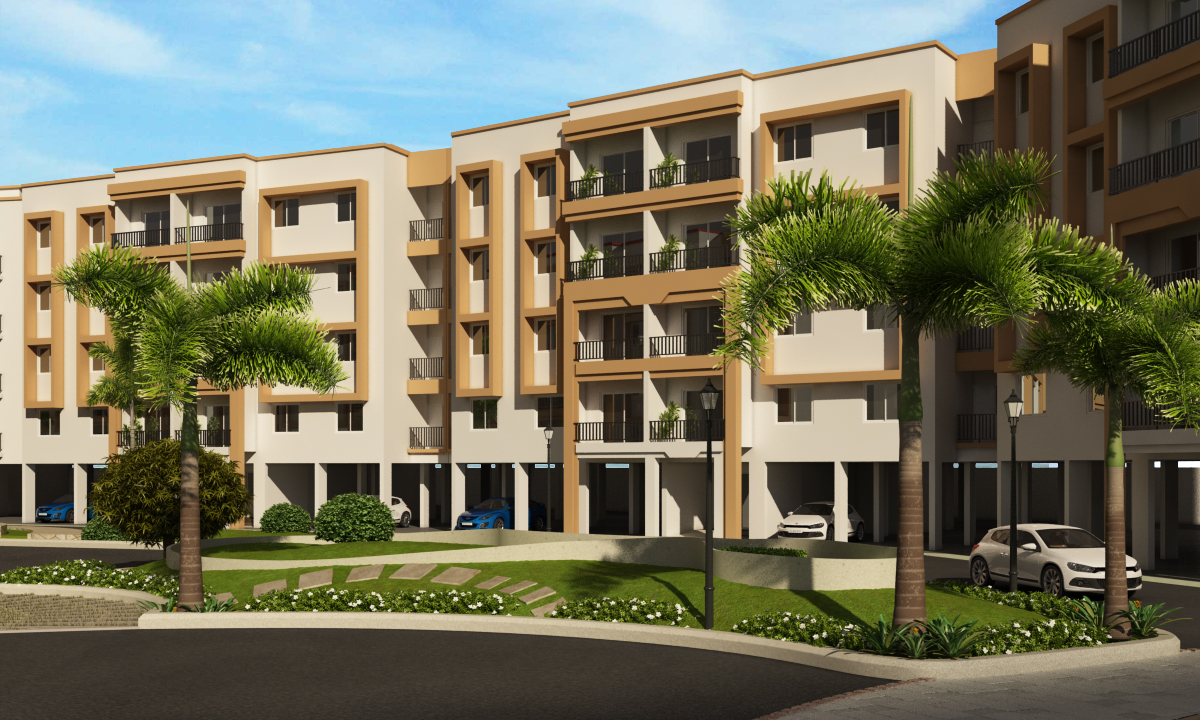 Track2Realty Exclusive: The real estate market has often been defined in terms of being either the buyers’ market or the sellers’ market. In most of the major markets across the country the bull phase of the economy led to the sellers’ market with demand outstripping the supply.
Track2Realty Exclusive: The real estate market has often been defined in terms of being either the buyers’ market or the sellers’ market. In most of the major markets across the country the bull phase of the economy led to the sellers’ market with demand outstripping the supply.
However, the bear phase of the economy brought to the fore distress sale in some of the markets while other markets survived with moderate ROI (Return on Investment), thus making way for a buyers’ market. What then is the difference in the Coimbatore market that has by and large been unaffected by the highs of Bull Run and the lows of the Bear Run.
Coimbatore, as a matter of fact, is so strikingly different from the rest of the property markets that it has never traded on two different streams of buyers’ market or the sellers’ market. With the demand coming mostly from the end users and not investors, it has always been an equal opportunity market. Even the end users in this market have never seen housing as a trading commodity, and purchase for speculative reasons have not been noticed in this part of the world.
It is rather interesting to note that even during the macro economic slowdown, in Coimbatore market buyers feel that it is the right time to buy and this optimism of the buyers is not based on crisis in the property market where the developers have gone belly up to opt for distress sale.
As a matter of fact, Coimbatore realty market is so different from many other over-heated and over-glorified real estate markets in the country that an outside view may not do justice to anticipate or understand the dynamics and inherent reality of the real estate market of the city in general and housing market in particular. Prima facie, Coimbatore property market is a buyers’ market if calculated on the given parameter of healthy transaction rate and this realism has not been hurting the cause of the developers as well.
It is debatable how far this has been kept a realistic market by default of market dynamics and to what extent it has evolved by conscious design of the developers. But what can be vouchsafed in Coimbatore market is the fact that understanding the geographical market, its sociology, key demand drivers, spending pattern and many other realistic fundamentals, the developers in Coimbatore have neither gone into speculative appreciation of the property nor there seem to be greedy investors on prowl to create artificial demand and hence artificial appreciation.
Though the property markets across the South India has not been driven by the investors or the speculators, the advantage with Coimbatore lies with the fact that most of the developers active in this market have deep roots in the local region and they understand the fundaments of the local economy as well. Moreover, most of them have not ventured into this market for expansion. Even some of the large scale property developers of South India who have tasted higher ticket size of units in the other South Indian markets like Bangalore have been modest with their offerings in the city, thus keeping the overall market very realistic.
Facts speak for themselves. Even at a time when the property market across the country was at its peak during 2002-07, leading to unrealistic appreciation of more than 100 per cent, Coimbatore property was appreciating at a healthy yet stable rate of 20-30 per cent on year-on-year basis. This appreciation again was subject to the pockets of economic activity and hence very realistic. The supply was fuelled in right proportion of demand throughout the Bull phase that made the market resilient during the bear phase.
And hence, when the property markets in other parts of the country nosedived following slowdown looming large post 2008, Coimbatore property only cooled down a bit without any visible sign of distress. Data from National Housing Board’s Residex show that the city’s index has risen from its base value of January 2007 to 184 in January-March 2013. This has been quite moderate compared to a rise to 310 for Chennai during the same period. This only reflects the realistic level of demand-supply cycle even from non-speculative standpoint of the South Indian property markets.
In today’s context, when the property markets in many of the major urban pockets have slowed down prior to the General Elections, Coimbatore has been least affected by the election sentiments. It is business as usual for both the home buyers as well as the developers even though everyone understands how much the policies and the government affect the business of real estate.
Arvind Nandan, former Executive Director, Cushman & Wakefield feels that the credit should be given to both the buyers as well as the developers to keep the Coimbatore market so realistic. According to him, there is no inventory hangover in this market and the supply is so target driven and demand gets absorbed so well that there is hardly any scope for speculation. And hence, Coimbatore is an equal opportunity market, very much like the rest of South India but distinctly different in the sense that it is catering to neighbouring markets as well due to thriving IT/ITeS and senior living due to better climatic conditions.
“Equal opportunity market may sound a bit clichéd in today’s context but that is how you can define this market. The moment you flood the market with inventory and then to make the business cycle moving you start luring the speculative buying, the property market loses momentum. It may suit some of the developers in the short term, but pinches all of them in the long term. That is a missing element in Coimbatore market and hence I would not even call it a completely buyers’ market. The fact is that it is an equal opportunity market that is reasonably rewarding for developers as well,” says Nandan.
Purvankara does not find it surprising that Coimbatore has shaped up as an equal opportunity market. Purvankara Group CEO, Jackbastian K Nazareth says very much like all the South Indian markets Coimbatore is a realistic market that carries lot of potential and there is no speculation over here. He finds the prices to be very much affordable here and since the affordability has not gone beyond the aspiration level it remains a buyers’ market.
“Land supply is though limited, yet land cost is also affordable because no one is bothered for land banking in this market. There is neither any mad rush to launch more and more projects here. The average projects are selling between Rs. 2000-4000 per sq feet. The developers are also conscious of the fact that the moment they increase the price beyond Rs. 5000 per sq feet, that will deter the buyers. This eco system has been the USP of the Coimbatore market,” says Nazareth.
Coimbatore has been witness to the peak cycle of property rally, yet the momentum of property appreciation has not lost in the city’s property market which is quite stable by any economic fundamentals, be it capital appreciation or the rental yield. At the same time, the growth of property market has also been at par with the growth of economic activity in the city. Residential and commercial spaces are growing more or less with the same pace. Not many property markets in India can claim this at a time when lopsided demand-supply cycle has brought the inventory level all time high everywhere.
Coimbatore property can safely be termed as an intelligent property market where both the buyers and sellers have reasons to smile. Analysts, therefore, call it more of an equal opportunity market than a buyers’ or sellers’ market. It keeps the buyers with expectations of unreasonable appreciation away, but is resilient enough not to crash or correct by macroeconomic upheavals. The moot point is that once the economy improves post the General Elections and the property market goes northwards, will the Coimbatore market still be equal opportunity market? At least, the experience thus far seems to suggest so.





